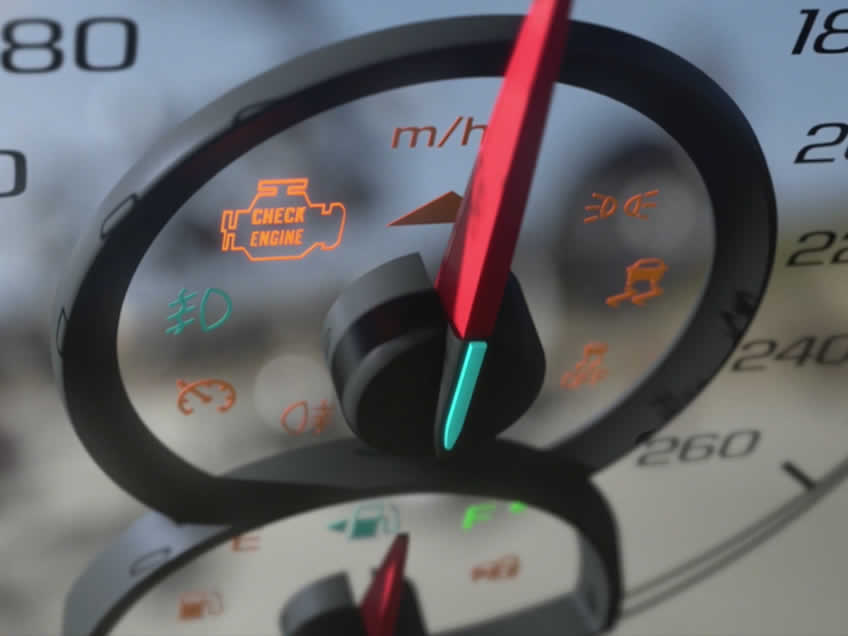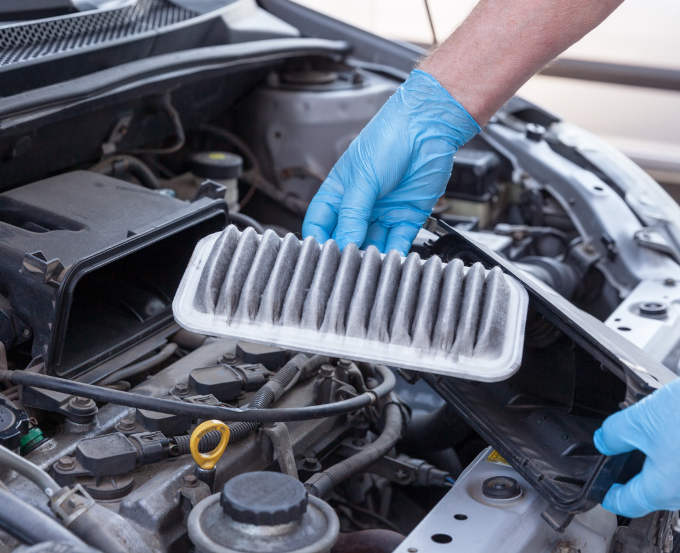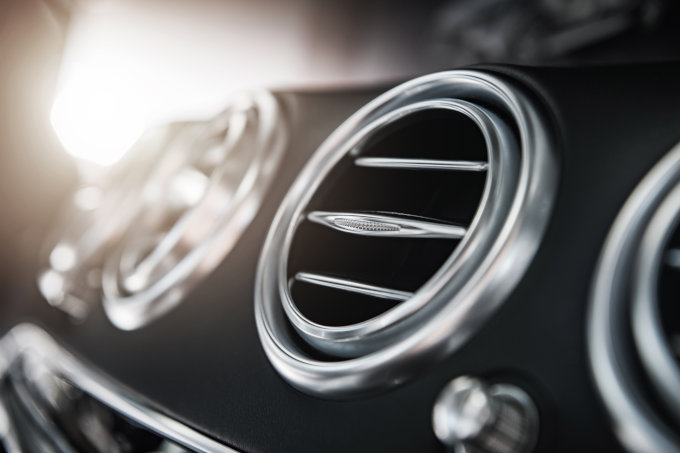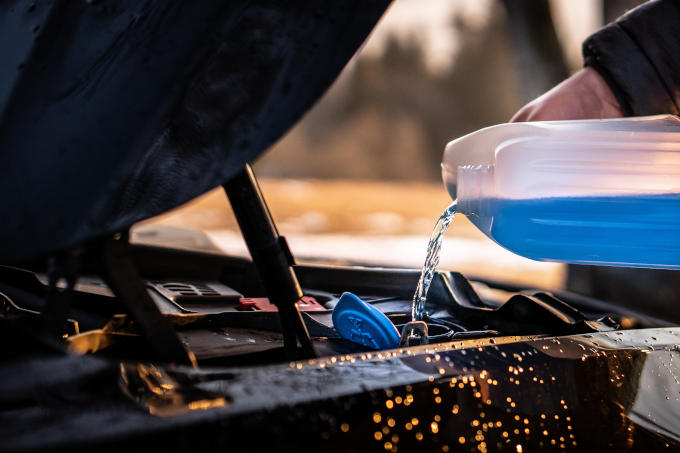Originally published on 05/11/2015
Updated on 08/16/2023
Your vehicle's engine works tirelessly, generating immense heat as it powers you through your daily travels. Whether you're driving through the scorching summer heat or navigating chilly winter roads, understanding how to keep your vehicle from overheating is essential for maintaining its optimal performance. In this article, we will delve into some valuable strategies that can help you safeguard your vehicle's engine and keep it running smoothly throughout the year. So, let's explore these practical tips that will keep your vehicle cool, reliable, and out of the repair shop.
Signs of an Overheating Engine
- Temperature gauge in the red zone: The temperature gauge on your vehicle's dashboard shows the engine's operating temperature. If the needle moves into the red zone or exceeds the normal operating range, this indicates that your engine has overheated. Pull over immediately to a safe location and shut off your engine. Steam or smoke from the engine bay: Steam or smoke billowing from the engine compartment is a visible sign of excessive heat. This could be caused by coolant leaking or evaporating due to high temperatures. Pull over immediately and turn off the engine if you observe steam or smoke.
- Unusual smells: An overheating engine can produce distinct odors. If you notice a sweet or syrup-like smell inside or outside the vehicle, it may indicate a coolant leak. A burning smell might suggest overheating engine components, oil leaks, or other mechanical issues. Any of these situations require immediate attention.
- Engine misfire or loss of power: When an engine overheats, it can cause a misfire or a noticeable reduction in power. You may experience rough idling, hesitation, or difficulty accelerating. This is another possible indication that the engine is struggling due to excessive temperatures.
- Dashboard warning lights: Many vehicles are equipped with warning lights to indicate potential issues, including engine overheating. Keep an eye out for warning lights, such as the coolant temperature warning light or the check engine light. If any of these lights illuminate, it's important to address the problem promptly.
- Coolant leaks: If you notice liquid pooling beneath your vehicle or see signs of green, or yellowish-green fluid dripping or spraying, it could indicate a coolant leak. Coolant leaks lead to insufficient cooling and subsequent engine overheating.
- High-Pitched Whining or Grinding Noise: Overheating can cause the engine components, such as the water pump or bearings, to malfunction or seize. This may result in unusual noises like a high-pitched whining or grinding sound coming from the engine.
If you observe any of these signs, taking immediate action is crucial. Safely pull over, turn off the engine, and allow it to cool down. Always avoid opening the radiator cap while the engine is hot to prevent injury. Contact a professional mechanic or roadside assistance for further diagnosis and necessary repairs to avoid more extensive damage to your engine.
Keeping Your Engine Calm
Keeping your vehicle from overheating and minimizing the need for repair shop visits requires proactive care and attention. Here are some of the best tips to help you maintain your vehicle to prevent overheating:
1. Regularly check your coolant levels
Coolant, also known as antifreeze, plays a crucial role in dissipating heat from the engine. Ensure that your coolant levels are within the recommended range and top up as necessary. Remember to use the coolant type recommended by your vehicle's manufacturer, which you can find in your owner’s manual.
2. Seek regular professional maintenance
Schedule routine maintenance appointments with a qualified auto technician. They have the expertise and the tools to perform comprehensive inspections, diagnose potential issues, and address them effectively.
- Regular coolant system checks: Ask your auto technician to regularly check the coolant levels, inspect the radiator, hoses, and radiator cap, and perform necessary coolant flushes and replacements according to the manufacturer's recommendations.
- Radiator and condenser cleaning: During professional maintenance, ensure the technician cleans the radiator and condenser to remove accumulated debris and ensure optimal airflow.
3. Monitoring temperature gauge
While driving, pay attention to the temperature gauge. If it is running hotter than usual or in the red zone, consult an auto technician immediately to diagnose and resolve the underlying issue.
4. Avoid extreme driving conditions
Minimize high-stress driving situations like towing heavy loads or navigating challenging terrains, as these can strain your vehicle's cooling system. Follow the manufacturer's recommendations for your vehicle's load capacity and operating conditions.
5. Follow professional advice
When visiting your auto technician, ask for specific maintenance advice tailored to your vehicle. They may suggest additional steps based on your vehicle's make, model, and any known issues.
6. Read your owner’s manual
Take the time to thoroughly read and familiarize yourself with your vehicle's owner's manual. It contains valuable information specific to your vehicle, including maintenance schedules, coolant specifications, and other cooling system-related details.
Conclusion
Recognizing the signs of an overheating engine and taking swift action can save you from costly repairs and prevent potential engine damage. Whether it's monitoring the temperature gauge, staying alert for unusual odors or sensations, or paying attention to warning lights, awareness is vital for maintaining the health of your vehicle. Remember, an overheating engine should never be ignored. When in doubt, it's always best to pull over, turn off the engine, and seek professional assistance. By promptly addressing cooling system issues, you can keep your engine running smoothly, extend its lifespan, and enjoy worry-free journeys on the road. Prioritize the well-being of your vehicle, and it will reward you with reliable performance mile after mile.
Safeguard Your Vehicle's Engine with AAMCO!
When it comes to protecting your vehicle from the perils of engine overheating, trust the experts at AAMCO Lee's Summit. Our team of skilled technicians understands the importance of early detection and swift action to keep your engine running smoothly. With state-of-the-art diagnostics and years of experience, we can identify any underlying issues, perform necessary repairs, and provide routine maintenance to keep your cooling system in optimal condition. Schedule an appointment with AAMCO Lee's Summit today and enjoy worry-free journeys on the road ahead!










